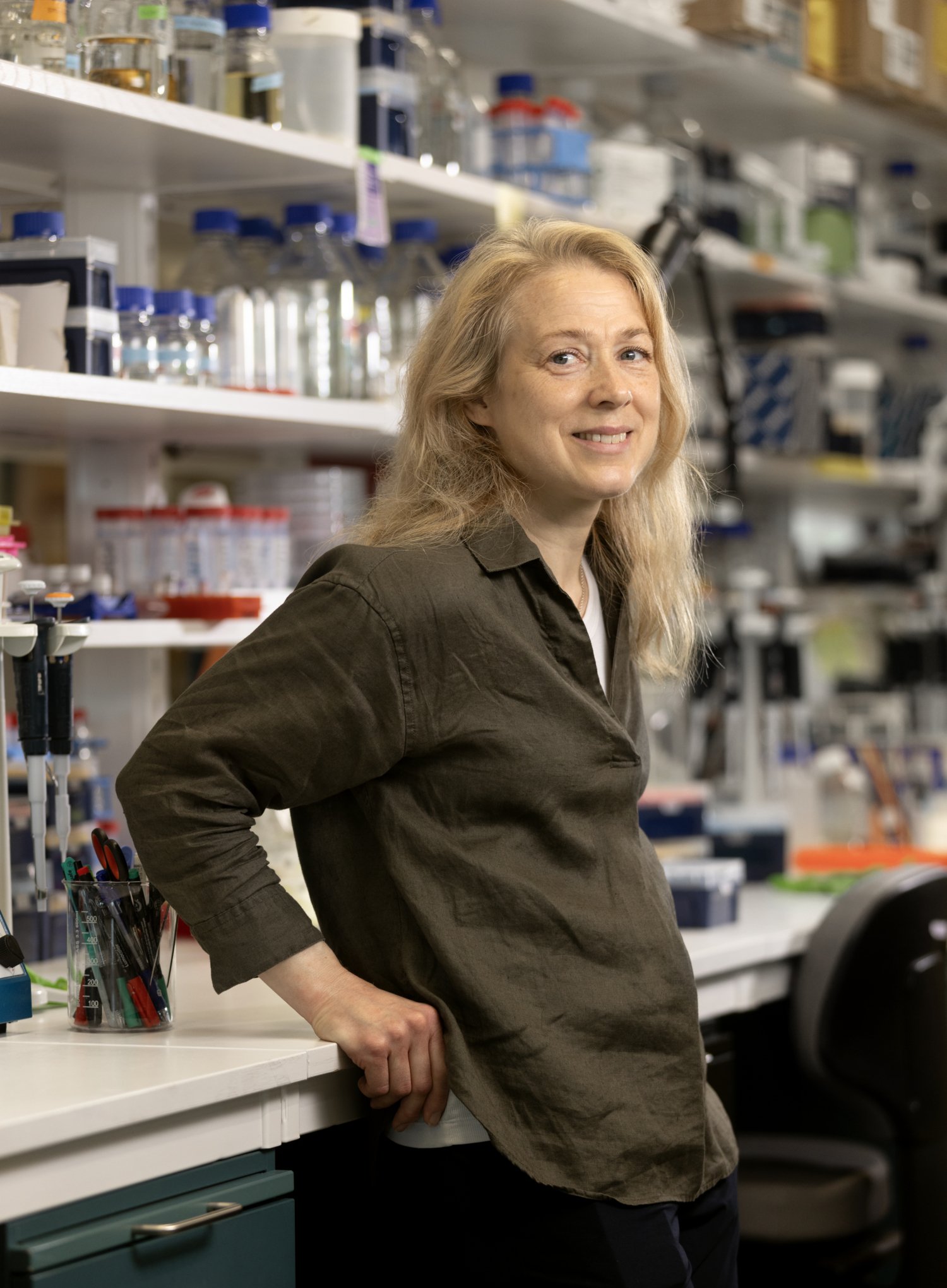Mitochondrial diseases are inherited and often affect children. With no effective treatment currently available, Anna Wredenberg hopes to discover more about mitochondrial function in order to improve both diagnosis and treatment. Meet one of the new professors of Karolinska Institutet who will participate in this year's installation ceremony at Aula Medica on 3 October.
Text: Karin Tideström, for KI's installation ceremony booklet 2024
What are you researching?
"I have a part time research position and work fifty per cent as a clinical geneticist at Karolinska University Hospital's Centre for Inherited Metabolic Diseases, where I study patients with different inherited metabolic diseases, including mitochondrial disease. I'm interested in understanding the mitochondria and how they are linked to various diseases. The mitochondria are the power plants of the cells and convert what we eat to energy. They're fascinating in many ways - they have their own DNA and almost 1,500 different proteins. When they don't work properly, they can affect many cellular processes."
Why is this research field important?

"Mitochondrial diseases are inherited conditions that are serious and that often affect children, with symptoms commonly arising in the muscles, brain and liver. There is currently no effective treatment, partly due to a lack of understanding about how the mitochondria work at a molecular level and how different mitochondrial defects give rise to disease. I hope that a greater knowledge of mitochondrial function can improve the diagnosis of these conditions and pave the way for new therapeutic options."
How are you going about this?
"We work mainly with different model systems in which we can manipulate genes that play a part in mitochondrial function. Then we study the effects of these changes at a molecular level. By confirming our findings in patient material, we'll be able to promptly put the new knowledge to diagnostic use."
About Anna Wredenberg
Professor of Mitochondrial Biology at the Department of Medical Biochemistry and Biophysics
Anna Wredenberg was born in 1974 in Stockholm. She became a qualified physiotherapist at Karolinska Institutet in 1996, where she went on to complete her medical degree in 2004. In 2007 she earned her PhD with a thesis on mitochondrial dysfunction in ageing and degenerative disease. After her postdoc studies at the Max Planck Institute in Cologne, Wredenberg returned to Karolinska Institutet in 2012 to begin her specialist training as a clinical geneticist. Anna Wredenberg was appointed Professor of Mitochondrial Biology at Karolinska Institutet on 1 February 2024.






